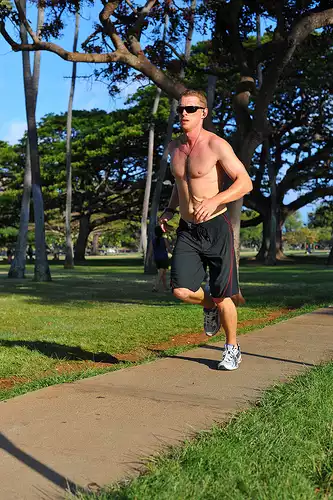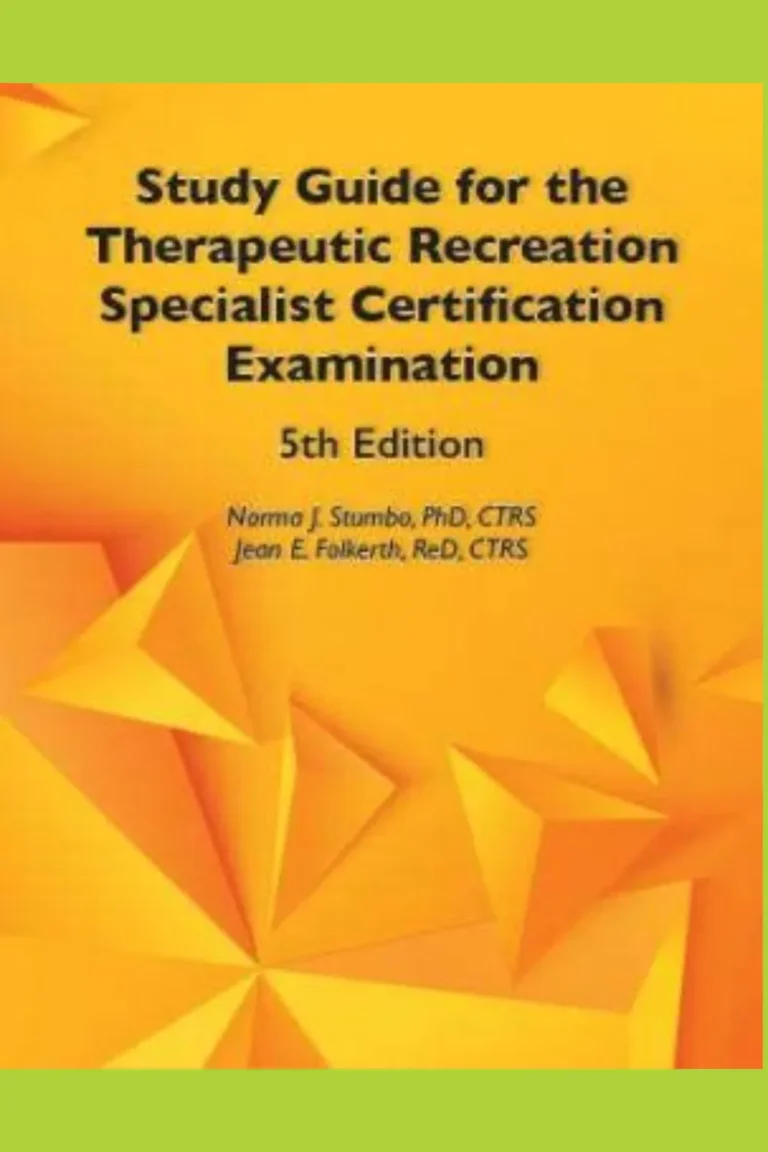Health Fitness Sports Performance
In the dynamic landscape of sports, where milliseconds can mark the difference between standing on the podium or watching from the sidelines, optimizing Health Fitness Sports Performance has transcended mere preference—it’s become imperative.
The fusion of these elements forms a triad that athletes across disciplines tirelessly strive to balance.
However, this pursuit is not reserved for elite competitors alone; it beckons anyone determined to push their physical and mental boundaries beyond ordinary expectations.
In this comprehensive exploration, we delve into the cutting-edge strategies and scientific advancements that are redefining potential in athletic arenas around the globe.
The synergy between health, fitness, and sports performance creates a foundation upon which unparalleled achievements are built.
As we embark on this journey together, our goal is to unravel the complex interplay of nutrition, training methodologies, and psychological resilience that underpins exceptional sporting prowess.
Whether you’re an aspiring Olympian or a weekend warrior aiming for personal bests, understanding how to harness these elements can transform your approach to competition and everyday wellness alike.
Join us as we uncover actionable insights and groundbreaking research designed to elevate your game to its zenith—where every heartbeat counts towards achieving greatness.
In today’s fast-paced society, maintaining a healthy and active lifestyle has become increasingly important.
Not only does regular exercise contribute to physical well-being, but it also has a significant impact on overall mental and emotional health.
With the rise of technology and sedentary jobs, it has become crucial to prioritize health and fitness in order to achieve optimal performance in various aspects of life.
This is especially true in the world of sports, where athletes strive to reach their peak performance and excel in their respective fields.
As such, the concept of health fitness sports performance has gained significant traction, highlighting the interconnectedness of these three crucial elements.
In this article, we will delve deeper into the relationship between health, fitness, and sports performance, exploring the importance of each component and how they work together to enhance an individual’s overall well-being.
With a focus on a professional and evidence-based approach, we will examine the latest research, techniques, and strategies for achieving optimal health and fitness levels that ultimately translate into improved sports performance.
Table of Contents Health Fitness Sports Performance
Importance of proper nutrition for athletes
Athletes often push their bodies to the limit in order to achieve peak performance in their respective sports.
One key factor that plays a crucial role in their success is proper nutrition.
Fueling the body with the right nutrients is essential for athletes to optimize their energy levels, enhance recovery, and support overall physical and mental well-being.
A well-balanced diet that includes the right proportions of carbohydrates, proteins, fats, vitamins, and minerals can improve endurance, strength, and agility.
Additionally, proper nutrition ensures that athletes maintain a healthy body weight, reduce the risk of injuries, and enhance immune function.
By focusing on fueling their bodies with nutritious foods, athletes can optimize their athletic performance and achieve their goals in their chosen sport.
Benefits of cross-training for athletes
Engaging in cross-training activities can provide numerous benefits for athletes looking to enhance their performance.
Cross-training involves incorporating different types of exercises and activities into an athlete’s training regimen, rather than solely focusing on their primary sport.
By diversifying their workouts, athletes can target different muscle groups, improve overall fitness levels, and prevent overuse injuries.
Cross-training also helps to enhance cardiovascular endurance and muscular strength, as it challenges the body in new and different ways.
Additionally, by participating in a variety of activities, athletes can develop a well-rounded skill set and improve their agility, coordination, and balance.
Ultimately, cross-training not only improves athletic performance but also promotes overall physical fitness and reduces the risk of burnout.
Incorporating stretching and flexibility exercises
Stretching and flexibility exercises are essential components of any comprehensive training program for athletes and individuals seeking to optimize their health and fitness.
These exercises involve elongating and lengthening the muscles, tendons, and ligaments, improving joint range of motion and reducing the risk of injury.
Incorporating regular stretching and flexibility exercises promotes better posture, enhances athletic performance, and allows for a greater range of motion during physical activities.
Additionally, these exercises help to alleviate muscle tension, increase blood flow to the muscles, and improve overall flexibility, leading to enhanced athletic performance and reduced muscle soreness.
By including stretching and flexibility exercises in their training routine, individuals can improve their overall physical fitness, prevent injuries, and promote long-term health and well-being.
The role of rest and recovery
In the pursuit of optimal health, fitness, and sports performance, it is crucial to recognize the paramount role of rest and recovery.
While intense training and physical exertion are vital for progress, it is during periods of rest and recovery that the body undergoes repair and adaptation.
Rest allows the muscles, tendons, and ligaments to repair themselves, replenish energy stores, and restore hormonal balance.
Adequate recovery time between workouts not only helps prevent overuse injuries but also allows for the consolidation of training adaptations, resulting in improved strength, endurance, and overall performance.
Furthermore, sufficient rest and recovery promote mental well-being, reducing stress levels and enhancing focus and motivation.
Therefore, incorporating strategic rest periods into training schedules is essential for optimizing health, fitness, and sports performance.
The impact of hydration on performance
Proper hydration plays a pivotal role in optimizing health, fitness, and sports performance.
Water is not only essential for sustaining bodily functions but also crucial for maintaining optimal physical and cognitive performance during exercise.
Dehydration, even at mild levels, can significantly impair athletic performance, leading to reduced endurance, decreased strength, and diminished cognitive function.
When the body is dehydrated, blood volume decreases, making it harder for the heart to pump oxygenated blood to working muscles.
This hinders the delivery of nutrients and oxygen, resulting in fatigue and a decline in performance.
Additionally, dehydration impairs thermoregulation, making it more challenging for the body to dissipate heat, leading to an increased risk of heat-related illnesses.
To ensure optimal performance, athletes and individuals engaging in physical activity must prioritize hydration by consuming adequate amounts of water before, during, and after exercise.
This will help maintain fluid balance, enhance endurance, improve strength and power output, and support overall physical and cognitive function.
Tips for injury prevention and recovery
Implementing proper warm-up and cool-down routines before and after exercise can greatly contribute to injury prevention and aid in the recovery process.
Prior to engaging in any physical activity, it is essential to adequately warm up the body by performing dynamic stretches and light aerobic exercises.
This helps to increase blood flow to the muscles, improve joint mobility, and prepare the body for the demands of exercise.
Similarly, after completing a workout, cooling down with static stretches and low-intensity exercises helps to gradually decrease heart rate and prevent the build-up of lactic acid in the muscles, reducing the risk of muscle soreness and injury.
Additionally, incorporating rest days into your training schedule allows for proper recovery and helps prevent overuse injuries.
It is crucial to listen to your body’s signals of fatigue or pain and make adjustments to your training intensity or duration accordingly.
By prioritizing proper warm-up and cool-down routines and allowing for adequate rest, you can effectively minimize the risk of injuries and promote a speedy recovery.
The mental aspect of sports performance
To truly excel in sports performance, it is vital to recognize and address the mental aspect of athleticism.
While physical training and conditioning are crucial, the mind plays a significant role in an athlete’s success.
Mental factors such as focus, concentration, confidence, and resilience can profoundly impact performance on the field or court.
Developing mental skills through techniques like visualization, positive self-talk, goal-setting, and mindfulness can enhance an athlete’s ability to stay calm under pressure, maintain motivation, and effectively cope with setbacks or challenges.
Moreover, seeking guidance from sports psychologists or mental performance coaches can provide valuable strategies for improving mental toughness and optimizing overall athletic performance.
By acknowledging and nurturing the mental aspect of sports performance, athletes can unlock their full potential and achieve their goals in a highly competitive sporting arena.
Finding balance between training and rest.
Achieving optimal performance in the realm of health, fitness, and sports requires a delicate balance between training and rest.
While training is crucial for building strength, endurance, and skill, it is equally important to prioritize adequate rest and recovery.
Pushing the body to its limits without allowing ample time for rest can lead to overtraining, increased risk of injury, and diminished performance.
Rest days or active recovery periods are vital for the body to repair and rebuild muscle, replenish energy stores, and prevent burnout.
Additionally, incorporating proper sleep and relaxation techniques into one’s routine can enhance the body’s ability to adapt and recover from intense training sessions.
Striking the right balance between training and rest is a fundamental principle that promotes longevity, sustainability, and optimal performance in the demanding world of health, fitness, and sports.
In conclusion, incorporating health and fitness into sports performance is crucial for any athlete looking to excel in their chosen field.
From improving physical and mental strength to preventing injuries and enhancing overall performance, prioritizing health and fitness can lead to significant improvements on the field or court.
As professionals, it is important for athletes to constantly evaluate and adjust their training regimens to ensure they are optimizing their physical and mental well-being.
Remember, investing in your health and fitness is an investment in your athletic success.
FAQ
What are some key factors that contribute to improved sports performance in athletes?
Some key factors that contribute to improved sports performance in athletes include proper nutrition, consistent training, adequate rest and recovery, mental preparation, effective coaching, and access to quality equipment and facilities.
Additionally, factors such as genetics, motivation, goal-setting, and support systems can also play a significant role in enhancing an athlete’s performance.
Overall, a holistic approach that addresses physical, mental, and emotional aspects is essential for athletes to reach their full potential and excel in their sport.
How can individuals effectively balance their fitness goals with their overall health and well-being?
Individuals can effectively balance fitness goals with overall health by prioritizing rest and recovery, incorporating a mix of cardiovascular, strength training, and flexibility exercises, maintaining a nutritious diet, staying hydrated, and listening to their body’s signals to prevent overtraining.
It’s important to set realistic goals, track progress, and seek professional guidance if needed.
Consistency, variety, and moderation are key in achieving a healthy balance between fitness goals and overall well-being.
Remember that rest and self-care are just as important as intense workouts in maintaining a sustainable fitness routine.
What are some common misconceptions about nutrition and its impact on sports performance?
Some common misconceptions about nutrition and sports performance include the belief that more protein is always better, when in reality, excessive protein intake can be harmful and may not necessarily improve performance.
Additionally, many people think that carbohydrates are always bad, but they are actually a vital energy source for athletes.
Lastly, the idea that supplements are necessary for optimal performance is often misunderstood; a well-balanced diet can usually provide all the nutrients needed for sports performance.
Overall, it is important to understand individual nutritional needs and not rely on myths or misconceptions.
How can individuals prevent injuries and improve recovery time during intense training or competitions?
Individuals can prevent injuries and improve recovery time during intense training or competitions by incorporating proper warm-up and cool-down routines, maintaining a balanced diet and staying hydrated, getting enough rest and sleep, listening to their body and avoiding overtraining, incorporating cross-training and strength training to prevent muscle imbalances, wearing appropriate gear and footwear, using proper technique, and seeking professional guidance when needed.
Consistency in these practices will help to reduce the risk of injuries and enhance recovery, allowing athletes to perform at their best and minimize downtime due to injuries.
What role does mental health and mindset play in achieving peak performance in sports and fitness activities?
Mental health and mindset are crucial in achieving peak performance in sports and fitness activities as they directly impact motivation, focus, resilience, and confidence.
A positive mindset can enhance performance by reducing stress, increasing determination, and fostering a growth mindset.
Similarly, good mental health practices can improve concentration, decision-making, and overall well-being, which are essential for optimal physical performance.
Developing a strong mindset through techniques like visualization, goal-setting, and mindfulness can significantly improve athletic performance and overall fitness outcomes.
Ultimately, mental health and mindset are foundational elements that contribute to success in sports and fitness activities.







